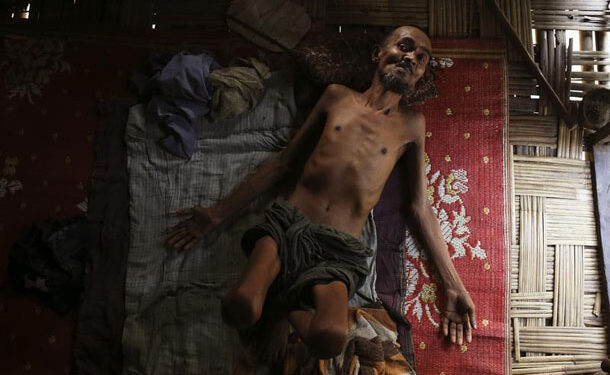RANGOON — A legal analysis has found “strong evidence” that genocide is being committed against the Rohingya Muslim minority in western Burma’s Arakan State, prompting a call for the United Nations to intervene.
A 78-page report, published on Thursday by the Lowenstein International Human Rights Clinic (LIHRC) at Yale Law School for the NGO Fortify Rights, concludes that actions and inactions by the government of Burma satisfy the criteria of genocide as defined by the 1948 Genocide Convention.
The report, based on three years of research produced by Fortify Rights, is the first to apply international law to the situation in Arakan State, also known as Rakhine, where an estimated 1.1 million Rohingya Muslims are denied citizenship and subjected to widespread discrimination.
Examining the government’s treatment of the minority since Burma’s independence from British colonial rule in 1948, the LIHRC found evidence of consistent rights abuses that have continued into the current reform period, which began when President Thein Sein’s quasi-civilian government took office in 2011.
Titled “Persecution of the Rohingya Muslims: Is Genocide Occurring in Myanmar’s Rakhine State? A Legal Analysis,” the report presents historical context and new documentation of abuses committed against the minority before outlining the relevant legal criteria of genocide.
While LIHRC does not conclude definitively that genocide has occurred in Arakan State, the report suggests that the state could be responsible for either committing or failing to prevent a genocide and recommended that the United Nations establish a commission of inquiry to investigate, determine whether the crime has occurred, identify perpetrators and suggest means of ensuring they are held accountable.
“The acts committed against the Rohingya, individually and collectively, meet the criteria for finding acts enumerated in the Genocide Convention and have been perpetrated against a protected group,” the report reads, referring to the convention’s definition of “groups,” “acts” and “intent” requisite to the crime.
“Allegations of genocide should not be taken lightly,” Matthew Smith, executive director of Fortify Rights, said in a press statement on Thursday. “Rohingya face existential threats, and their situation is worsening. Domestic remedies have failed. It’s time for the international community to act.”
Burma’s Rohingya population is not recognized by the government as an ethnic group, referred to instead as “Bengali” and viewed as illegal immigrants. While many have lived within Burma’s borders for generations, they have long faced obstacles to acquiring legal documents and changes to citizenship criteria in 1982 have rendered them stateless.
In 2012, riots that began in central Arakan and soon spread throughout the state disproportionately affected Rohingya communities, leaving more than 140,000 confined to camps for internally displaced persons (IDPs). Conditions in the camps and restrictions on movement applied to the Rohingya population at large contributed to tens of thousands of Rohingya fleeing the country by boat to seek asylum in neighboring countries.
Those departures, as well as a growing number of migrants leaving Bangladesh in search of economic opportunity, ultimately led to a migration crisis that reached its zenith earlier this year when thousands of people were abandoned at sea amid a crackdown on human trafficking syndicates.
“The plan of the government is to finish our people, to kill our people, but they cannot kill us all by the bullet,” read the testimony of a Rohingya man interviewed by Fortify Rights. “But what they can do is deny food and medicine, and if the people don’t die, they will leave the country. The government has used a different option to kill the people.”

















